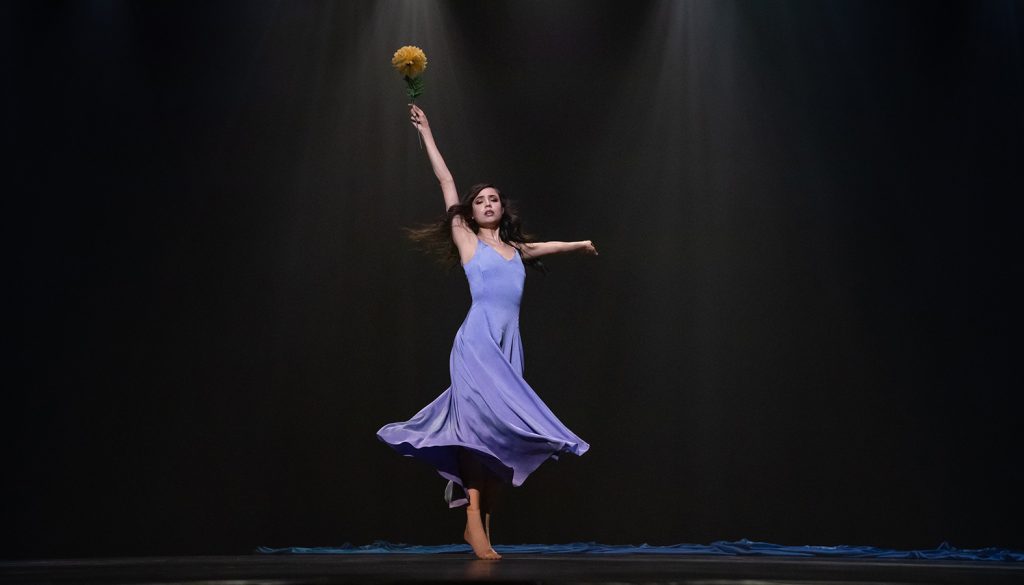Ever since Netflix released sneak peek photos of its original film “Feel the Beat,” it was clear that it promised to be a showstopper. Upon its recent release, it delivered on that promise.
In this family comedy starring Sofia Carson (“Descendents,” “Pretty Little Liars: The Perfectionists,”) director Elissa Down presents eye-popping dancing, rekindled high school romance, and a loud and proud anthem to girl power. Given all this, it’s hardly surprising that the film quickly ranked among Netflix’s top 10 films in the nation.
But amid all the glamor, drama, and fun, “Feel the Beat” also offers something more profound.
About two-thirds in, April (Carson), an aspiring Broadway dancer turned dance teacher, poses a question to her assistant, Miss Barb (Donna Lynne Champlin): “Are you happy?”
It’s a question that comes to define the film: “Feel the Beat” offers insight into the right (and wrong) answer to that crucial question.
When we first meet April, a talented, ambitious dancer hell-bent on following her dreams of Broadway success, she has her clear-cut roadmap to happiness.
This dream doesn’t seem so far-fetched: she’s got the talent, dedication, and love for dancing to make her plan seem plausible. And to a certain extent, it works: As her ex-boyfriend Nick (Wolfgang Novogratz) puts it, when he saw her come out of rehearsal on 46th street, she “had never looked happier.”
But when a trainwreck audition and an eviction catapult April back to her hometown in Wisconsin, she finds herself back in the shabby dance studio of Miss Barb, who has a very different approach to finding happiness.
At first, Miss Barb doesn’t seem like much of a character. Her nonstop energy and chatter — not to mention her oblivion to April’s dejection — present her as a goofy neighborhood mom who could happily play a sideline role for the remainder of the film.
But in fact, Miss Barb has much more to offer. Thanks to her, April learns the secret to happiness that she’s been missing: giving.
When Miss Barb hears April’s pointed question, “Are you happy?” her eyes light up. “I love my life,” she answers with a nod. “I chose this life. I love teaching, and I love owning my own business. And I love living in a town where if I’m feeling a little under the weather, the next thing I know, there’s a casserole on my porch.”
In these few words, Miss Barb sums up the philosophy that motivates her life. Her vision of happiness lies not in chasing down dreams of fame and fortune for herself, but rather in pouring her heart into the service of others.
Simply by being around her, April discovers the joy that this lifestyle brings. After a pitiful first day trying to train a group of adolescent students for a dance competition, she overhears Miss Barb explaining a step to two lingering girls. In contrast to the confusion and fear with which they responded to April’s fury, the girls nod and smile, completely at ease.
Later, when Miss Barb ends class early, she gives April her first opportunity to enjoy herself watching the girls laugh and splash in the rain. And in their conversation about happiness, April recalls how Miss Barb’s constant care helped her cope when her mom left.
Miss Barb’s selfless example does not make April less committed to dancing, nor less demanding on her students. But it opens her eyes to a new reality: that prioritizing a self-centered goal leaves one feeling empty, while choosing to put others first makes life fulfilling. Only by embracing this reality can April have a shot at a happy ending, and it’s only when she doesn’t hog the spotlight that her dances are the most beautiful.
Carson might make more headlines for her impressive dance performances in “Feel the Beat,” but Champlin brings the heart of the film. Together, the two animate a story that is both entertaining and uplifting, making this film a winner.

